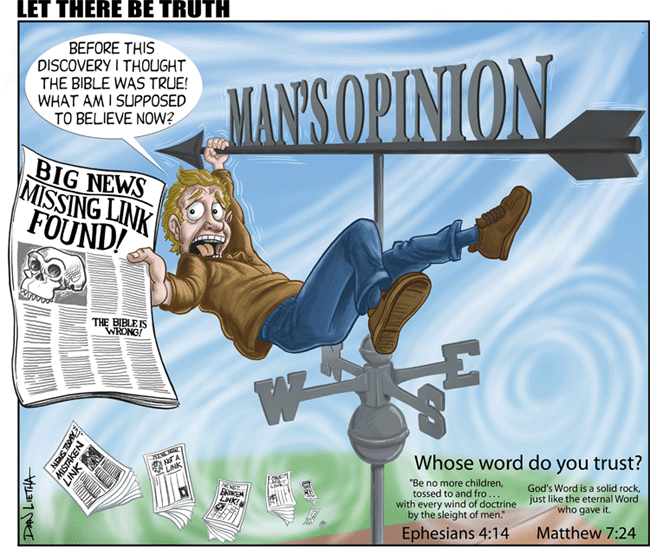Quid est Veritas?
In Memoriam to CS Lewis
There is no such thing as any writing being 'purely factual' in the manner you want. Any narrative is already placing things in a specific context and thus altering the understanding thereof and biasing the reader. Pick up biographies of someone and you see this. For instance, a Ricardian society biography of Richard III vs a traditional one. They'll both have the same 'facts' today, but are very different. In the past, history was merely written along more literary lines than the modern version with attribition, etc. A good way to think of them is like a movie based on real history, like Darkest Hour or Lincoln. A 'fictionalised' narrative created on our perceived view of true events. Again, this was not the point of the Gospels, which was to tell and explain the Good News.Well you seem to be a Christian and you're saying that the stories aren't purely factual. You said:
That is not compatible with being purely factual.
Yes? Why does this mean it must be some form of writing that simply did not exist at the time? Probably has never existed, as history is mostly 'lies agreed upon' as attributed to Napoleon. The Bible also has poetry and wisdom literature. Being inspired does not mean it must adhere to a narrow idea of 'purely factual' of modern invention, not even applied to others. Read the Church Fathers and you'll see they were well aware of variation between gospels, but it bothered them little and did not stop all the Gospels being 'God-inspired'. Augustine mentions the Gerasa, Gadara thing and such and often drew lessons from variation too. Even the translation differences between the Hebrew text and the LXX was a place of potential God-inspired revelation to Augustine, which today is often treated as if some 'problem'. I advise reading the latter parts of City of God, so you can have a better idea what is meant by 'God-inspired' by the Church Fathers.Well the Bible is different from accounts of Julius Caesar's assassination. Many Christians believe it was inspired and God-breathed.
You don't understand what I am saying and don't seem to be reading with comprehension that passage. They say He can't be the Messiah as not of Bethlehem, but others hailed the Galilean as Messiah regardless. John often creates such seeming ambiguity, while by doing so hinting to deeper truth and understanding. Why mention that at all, if he was arguing for Jesus as God (as John states right at the beginning)? The fact of Bethlehem not being ommited entirely speaks volumes. It is the same type of thing often found in John, like Pilate's Cynical "What is Truth?" that goes unanswered after Jesus calls himself truth. This is why it is called the Spiritual Gospel, as it is trying to inculcate deeper understanding than a superficial narrative.The crowd's knowledge of the Christmas stories
"At a festival in Jerusalem, which Jesus' brothers also attended (John 7:10), some of the crowd said that Jesus was the Messiah (John 7:41-42).....Some of the crowd were aware of the prophecy that the Messiah would come from Bethlehem and they were sure that that didn't apply to Jesus." [i.e. no one was saying that Jesus came from Bethlehem]
There were no "both sides". No-one, including the author of John, said that Jesus was from Bethlehem or was a descendent of David. Luke and Matthew were also aware of the prophecy of Bethlehem and David and so made sure he was born there (in different ways - in Matthew they begin there in a house) and clearly descended from David (with their own contradictory genealogies as proof).
You should go back to the drawing board. Your reading has been ludicrously superficial. Your very failure to see the problem of Herod shows a failure to address the political situation of 1st century Judaea. This is highly important for understanding the birth narratives, being about kings of the Jews. For instance, Herod the Great had been deposed by adherents of the Hasmonaean Aristobolus, with Parthian backing, before Rome re-installed their client king. This underlies the Magi visiting Herod regarding a newborn king, Magi being a Medean priestly class from within Parthia. As I said, you are substantially missing the point that the writers are trying to get across.I did talk about time references!
When Was Jesus Born?
"Jesus was alive when King Herod the Great was alive, but most scholars believe that Herod died in 4 BC, so Jesus must have been born in 4 BC or earlier."
"...which means that the census, when Jesus was born in Luke, would have happened in 6 or 7 AD."
So if I had read my own book more carefully I would have realised that Herod the Great wasn't alive when Jesus was born in the book of Luke. (though I know some Christians place the census back when Herod the Great was alive)
I'm more concerned whether things are purely factual or not. The Christians I know believe that the Bible is purely factual (unless there are some metaphors, etc) My focus in on the words in the Bible themselves though in the "When Was Jesus Born?" and
"Why are the genealogies different?" sections I looked outside of the Bible.
Well it seems you agree with me that it seems the Christmas stories aren't purely factual and are at least partly invented.
Chasing some pipedream 'factual' is meaningless. You can't do this for any Hellenistic narrative, so it can be seen as factual as the Caesars, depending upon the framework within which it is placed. Chasing some made-up standard that no one of the period expected nor any other work can live up to, is equally so. You can't have your cake and eat it too, affirming ancient authors on dates for Herod's death but then demanding absolutes for the Gospels.
The second something is placed in a narrative, it ceases being what it was. It becomes a story, it has a new context. Its meaning becomes relational to this. So 'empiric facts' placed in a scientific theory as support or falsification, is no longer purely factual. Newtonian Mechanics wasn't purely factual, as can be seen in the fact that it was superceded by Relativity and Quantum theory - their own narratives written around findings, which themselves remain inconsistent in places. It is a framework of understanding, bearing a structure of valence. Essentially, something like a Just So story, which is why many Scientists like to call us Pan Narrans - the storytelling Ape. So if we can't even expect the purely factual in our Sciences, how on earth do you expect it in history? Our creation of Historical timelines by modern Historical Critical Method is just cherry-picking ancient authors and moving events around to what seems most plausible to us, or upon which writer we place most trust, anyway. It is also not purely factual, but a further contextual narrative framework built around it.
Further, the very fact of four Gospels, four different frameworks of understanding of Jesus, shows that this really is not what the Church Fathers were after either. Your objections are thus quite silly indeed. As I said, if you don't address things on their own terms, upon which they were created, then anything can be discarded. You essentially set up strawmen to knock down, or a variation of other fallacious reasoning. As Pontius Pilate once said according to the Gospel: "What is Truth?" or to rephrase in its Cynic philosophic tradition: What is Fact?
Upvote
0


